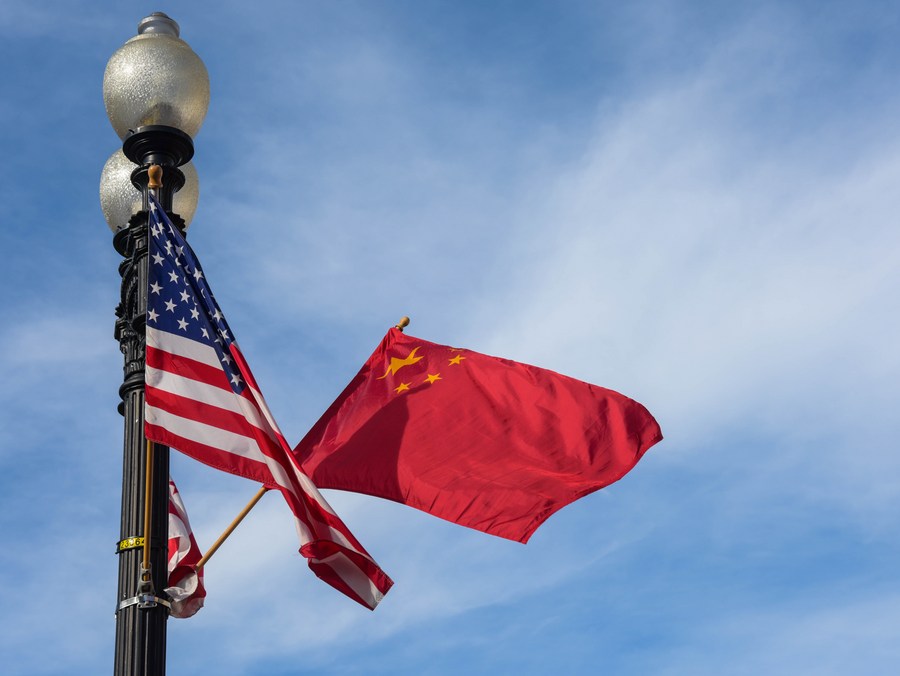Steer China-US ties back to right course
Xinhua | Updated: 2021-02-04 08:54

This year marks the 50th anniversary of Henry Kissinger's ice-breaking secret trip to Beijing. After half a century of development, China-US ties now stand at a new and critical crossroads.
In the past four years, the former US administration waged a trade war against China, willfully bullied Chinese firms and fanned ideological confrontation with Beijing. As a result, this one of the world's most important bilateral relationships has been plunged to the lowest point since its last normalization.
With a new US administration inaugurated last month, policy-makers in Washington should join counterparts in Beijing to pull the relationship back to the right track and restore reason in its future development.
For that to happen, Beijing is willing to work with Washington to push the relationship forward along the track of no conflict, no confrontation, mutual respect and win-win cooperation."
History and reality have shown unequivocally that both China and the United States stand to gain from cooperation and lose from confrontation.
In recent decades, the two countries fostered an exuberant trade partnership of mutual benefits and facilitated robust people-to-people exchanges. On the global stage, they joined hands in the fight against terrorism, helped the world weather the 2008 global financial crisis, combatted the Ebola epidemic, and collaborated on the Paris climate accord. The sad thing is that the former US administration has done almost nothing constructive but backpedaled.
"It is a task for both China and the United States to restore the relationship to a predictable and constructive track of development, and to build a model of interaction between the two major countries that focuses on peaceful coexistence and win-win cooperation," said senior Chinese diplomat Yang Jiechi Tuesday in an online conversation with board members of the National Committee on US-China Relations.
Today, from stemming the spread of the novel coronavirus to resuscitating the global economy, from tackling climate change to maintaining digital security, the two sides should and can, as Yang suggested, rejoin their hands, and work with the rest of the world.
To steer China-US relations back to the right course, first of all, Washington needs to see China as it is, and abandon the outdated mentality of zero-sum and major-power rivalry.
China-bashers in the previous US administration viewed China as a major strategic competitor, even an adversary. Such a historically, fundamentally and strategically wrong judgment has led to their increasingly confrontational policy towards China, an approach commented by The Washington Post as "a fiasco -- not a triumph."
China's purpose of developing itself is to better the lives of its people. That is as legitimate and reasonable a goal as that of those who want the same for their own people.
Secondly, the new US administration should remove the stumbling blocks to people-to-people exchanges, and restore normal interactions between the two sides.
Despite the hurdles created by China-chiding forces in Washington, bilateral exchanges and cooperation have registered new progress in various fields because such bond meets the interests of people in both countries.
China and the United States now have 50 pairs of sister provinces and states and 231 pairs of sister cities. In 2020, two-way trade in goods grew by more than 8 percent to over 580 billion US dollars.
Furthermore, the two side should properly manage their differences. Chief among them is respecting each other's core interests and major concerns, as well as each other's choices of political system and development path.
As Beijing has stated on various occasions, China never meddles in the internal affairs of the United States; it never exports its development model or seeks ideological confrontation; and it has no intention to challenge or replace the US position in the world.
Likewise, the US side should avoid trespassing China's red lines on issues of Taiwan, Hong Kong, Tibet and Xinjiang, which concern China's core interests, national dignity, as well as the sentiments of its 1.4 billion people.
Last but not least, the two sides need to broaden mutually beneficial cooperation as there are more and broader areas they can and must cooperate, namely the anti-pandemic fight, global economic recovery, climate change, digital security, among others.
As Kissinger, one of the key ice-breakers for China-US diplomacy, observed in his book "On China," when the two sides restored relations decades ago, the most significant contribution the leaders of that time made was "their willingness to raise their sights beyond the immediate issues of the day."
For the new US administration, sharing such a vision and steering US-China ties back to the right course of stable and healthy development is in the interests of not only both sides but also the wider world. Washington should have the courage and the wisdom to make the correct choice.
























